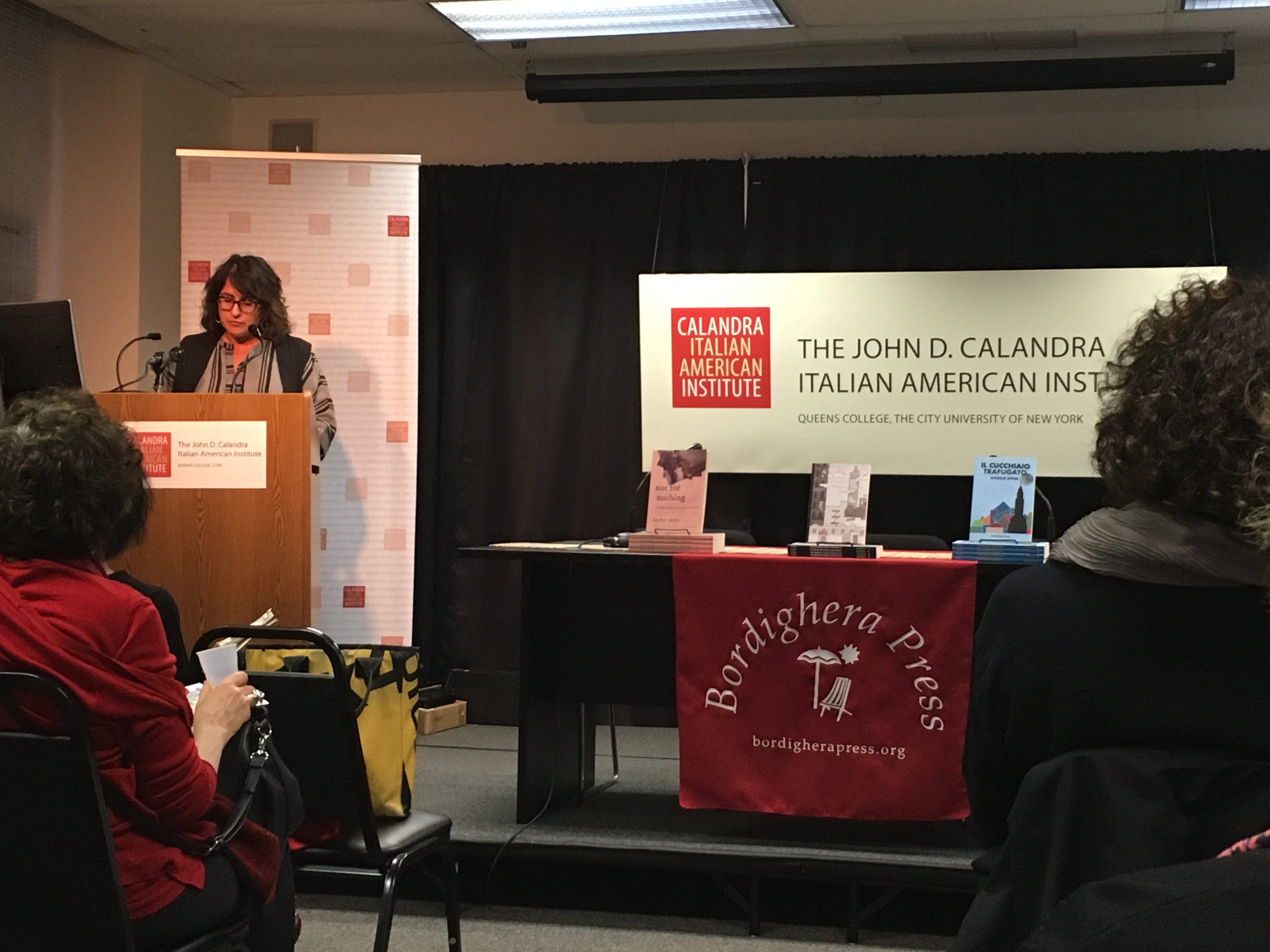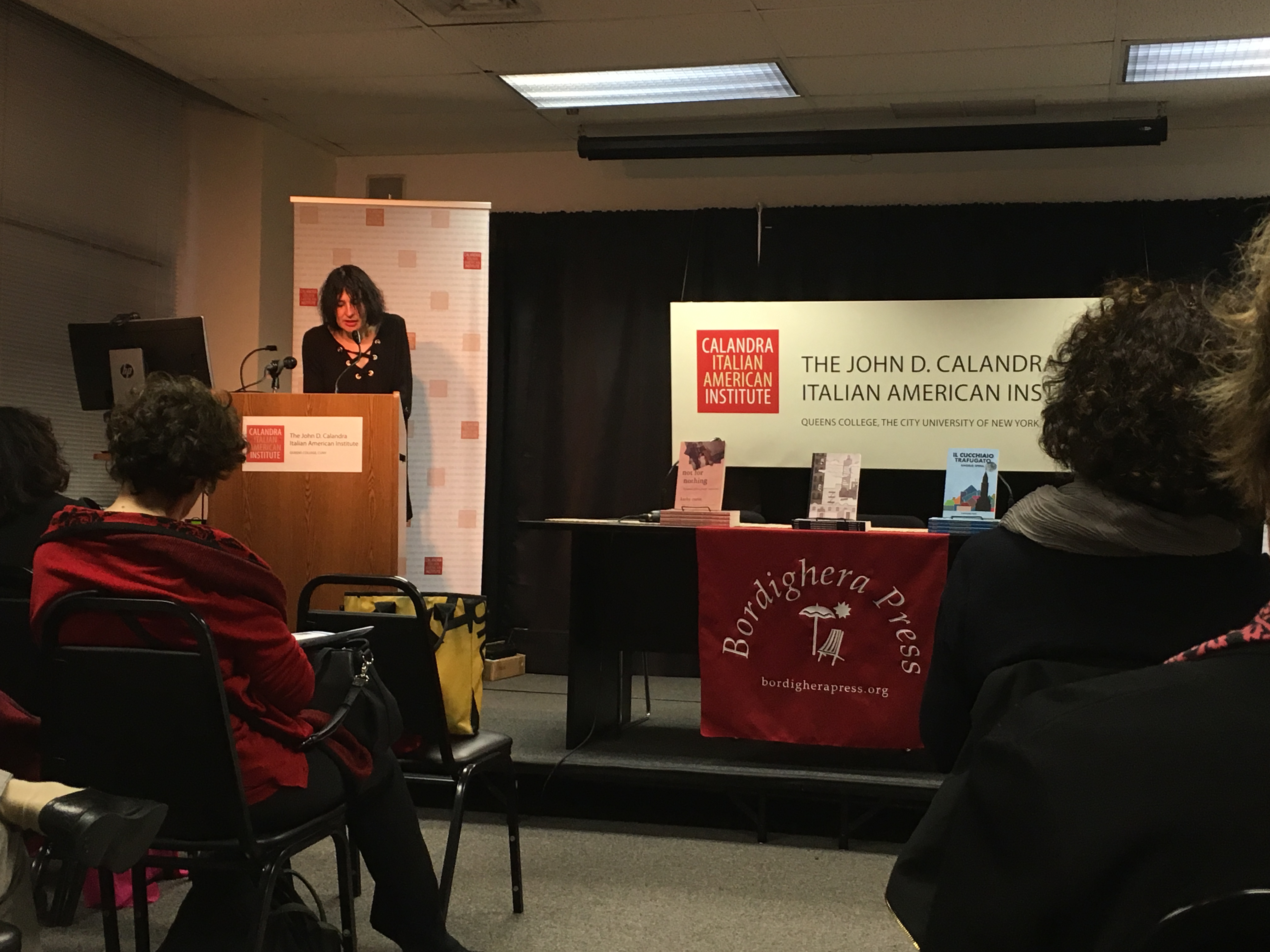“We were founded out of necessity, to a certain degree,” Prof. Anthony Tamburri, Dean of the John D. Calandra Institute of Queens College, CUNY, began. This necessity, of course, is to preserve Italian literary culture outside the confines of Italy. “We think that there needs to be a venue in the United States…for writing in Italian,” he explained. “The Italian literary establishment…tends to only recognize things within [Italy], and anything else outside of Italy is not really ‘Italian literature.’”

My own view is that to fail to consider the recent works of the presenting authors and poet as “Italian literature” just seems wrong. Author Kathy Curto read the audience excerpts from her book Not for Nothing, and we were all instantly transported to an Italian-American home in New Jersey during the 1970’s. Poet Sara Fruner recited a few pages of Bitter Bites from Sugar Hills, her collection of poems about her interpretation of New York City as an Italian, and the room was filled with rhythm and literary music. Lastly, Italian author Angelo Spina shared passages from his book Il cucchiaio trafugato, and we were immersed in the Italian language while following both Italian characters in Italy and Italian-American characters in Greenwich Village. How could any of this be considered anything but a part of the Italian literary canon?

For the past 30 years, Bordighera Press has been the platform to present these non-mainstream cultural pieces. According to Tamburri, it has helped that they “have always had a couple of well-known writers,” like American poet Lewis Turco, and have had reviews of books they’ve printed featured in Publisher’s Weekly, like Curto’s Not for Nothing. Despite this, my question to Prof. Tamburri and to Prof. Fred Gardaphé, another founder of Bordighera Press and professor of Italian-American Studies at Queens College at CUNY, remained, “How is it going to be possible for this press to continue printing 30 more years into the future?”

When considering the possibility that most Americans glean their knowledge of Italian-American culture from the all-too-familiar mafia movies like The Godfather, it is clear that there should be some publishing institution to ensure the continued cataloging of literary output by Italian authors outside of Italy. Prof. Gardaphé declared that the key to being able to continue growing alongside what Tamburri called the “dominant culture” of the Italian literary tradition, is to involve the next generation of young people.
“We want to formally institutionalize [Bordighera Press],” Gardaphé stated. He further explained that this would then allow them “to find young professionals who are interested in the field [and] who would be happy to take it over.” Tamburri added, “It will happen to a greater extent when there are more graduate programs in Italian-American studies, from [which] the featured editors and scholars will come.”












